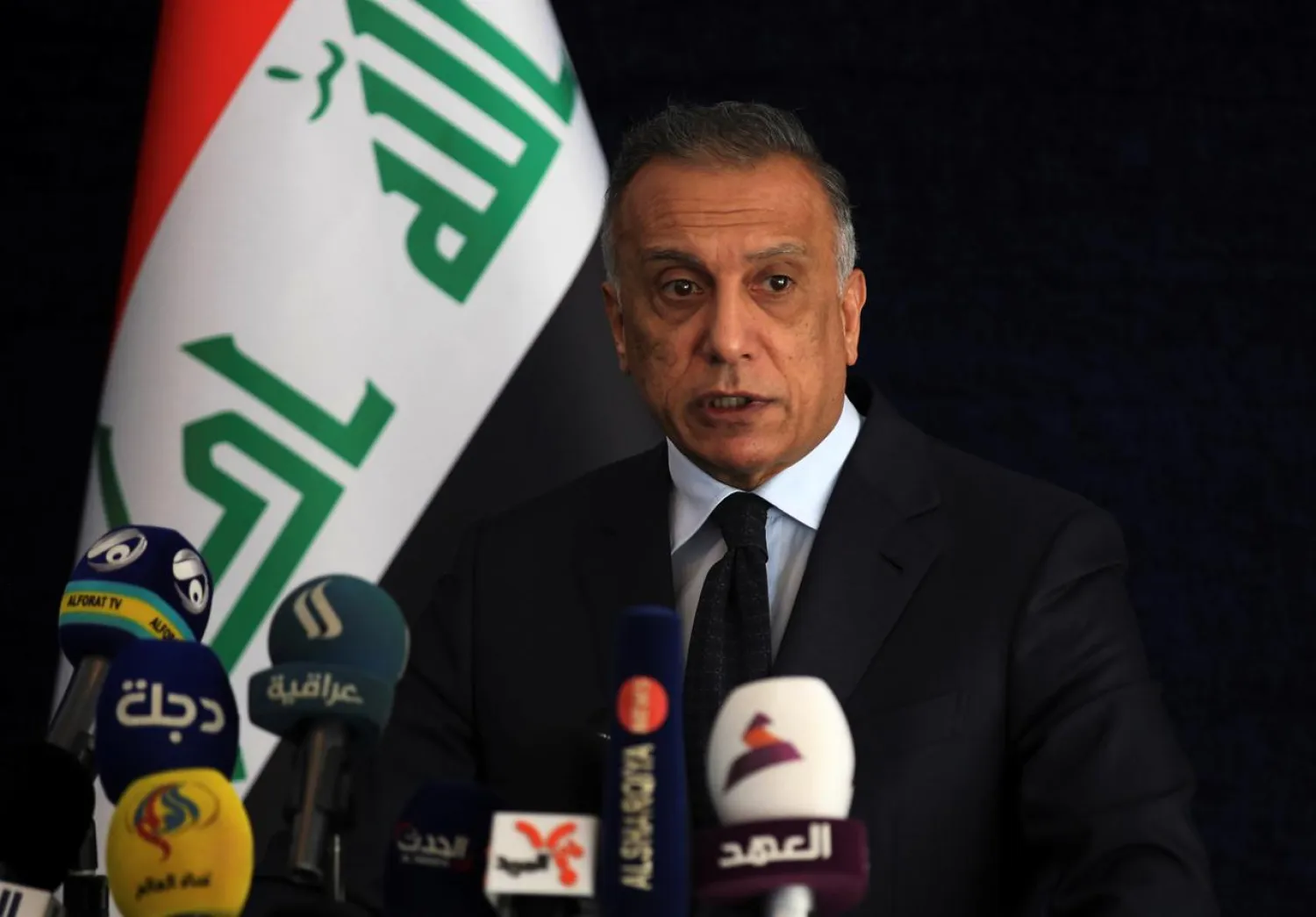Iraqi political forces and blocs have started to make demands and lay out conditions ahead of Prime Minister Mustafa al-Kadhimi’s anticipated visit to the United States on August 20.
Armed factions have expressed their skepticism over the motives of the trip, while politicians have said that it was aimed at establishing some form of “international balance.”
Spokesman of the “Kataib Sayyed al-Shuhada” faction, Kazem al-Fartousi said Sunday the visit is aimed at “offering guarantees over the dismantling of the Popular Mobilization Forces (PMF).”
If he cannot dismantle the PMF, then he will exert efforts to limit its role, he revealed.
The PM will also offer “guarantees to loosen Iraqi-Iranian relations,” he claimed. “Kadhimi had declared his allegiance to the US before his appointment as PM and he is now beginning to act according to American interests. He will also work on combating the resistance factions.”
Member of the parliamentary foreign relations committee, Rami al- Sukaini countered these allegations, saying the premier’s visit is aimed at achieving “some form of balance and supporting and bolstering Iraq’s interests.”
He told the official Iraqi news agency that the trip will tackle numerous economic, political and security affairs.
“The Iraqi prime minister must change his approach and this can only be achieved by striking a balance within the government and avoiding leaning towards one camp at the expense of the other,” he explained.
International powers are at play in Iraq and that should persuade forces to establish some form of “balance and calm on the internal and external fronts,” he added.
MP Habib Karim told Asharq Al-Awsat that Kadhimi’s declared agenda of the trip reveals that it carries a “clear roadmap for the nature of bilateral cooperation” that can be implemented on the ground.
Energy, health, economic and investment files alone can return bilateral relations between nations back on the right path, he continued.
Political science professor of at the University of Kufa, Ayad al-Anbar noted to Asharq Al-Awsat: “Kadhimi had paid a visit to Iran before his trip to the US. He was first supposed to travel to Saudi Arabia, but the trip was postponed by mutual agreement.”
“The Washington visit, therefore, comes at an important time and will primarily serve Iraq’s interest,” he added.
He stressed that the visit must address a roadmap that the Iraqi government must follow in tackling important files, especially security and economic ones, that require American support.
Failure to tackle these important issues will render the visit a failure, he added, noting that Iraq can act as a meeting point for regional rivals, not an open ground for their disputes.









